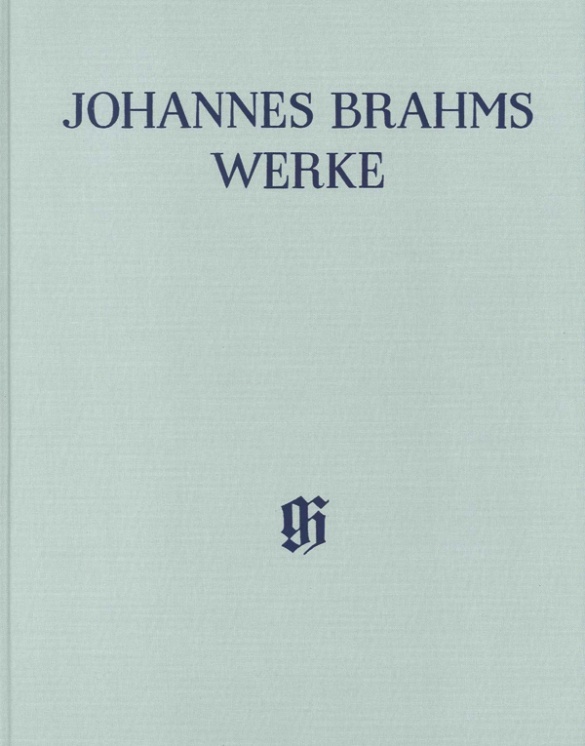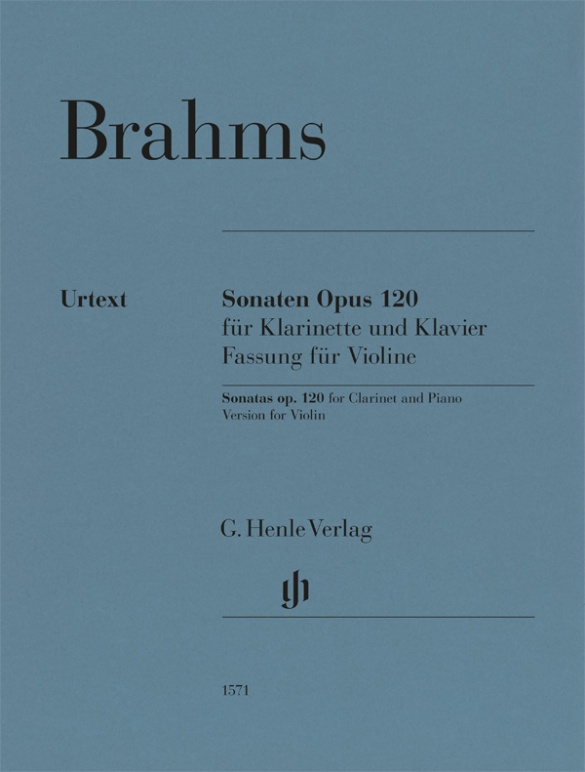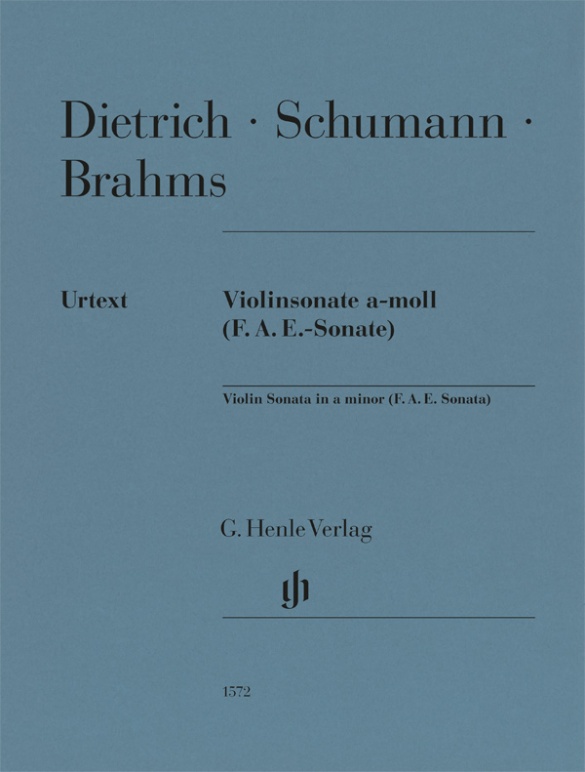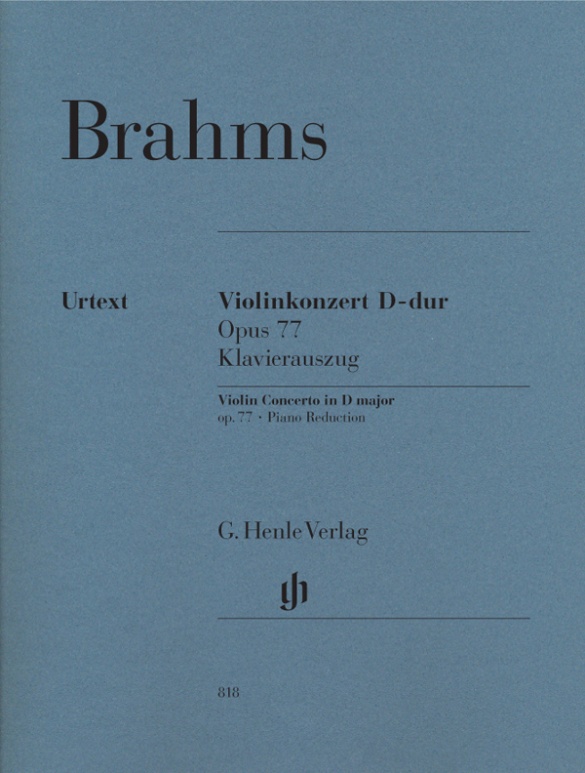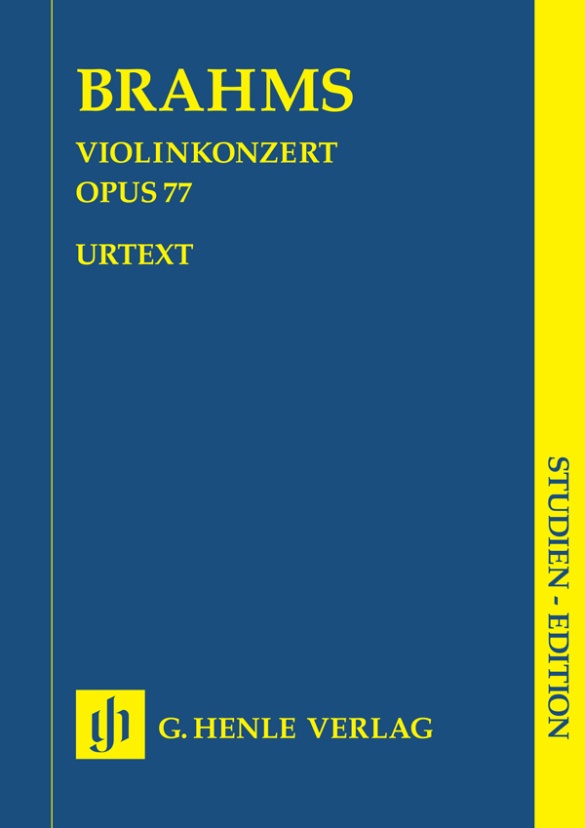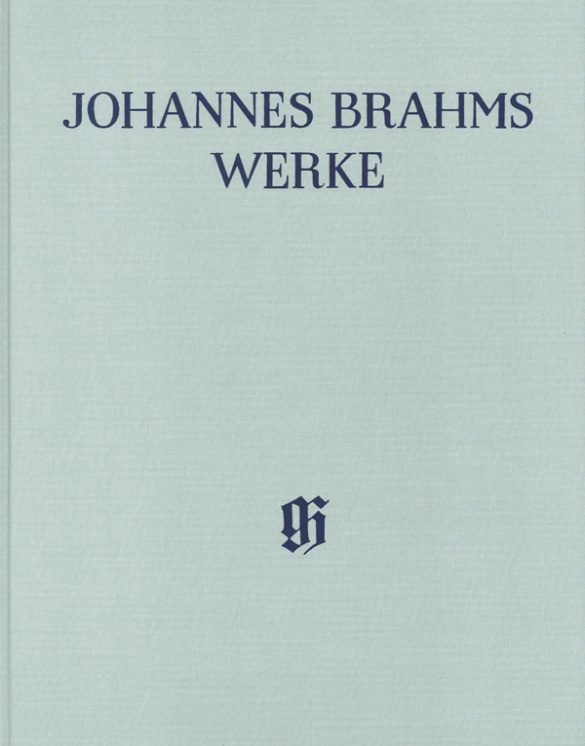Johannes Brahms
Ser. 2, Vol. 8 | Violin Sonatas
mws-henle.cms.title-works.headline
mws-henle.cms-product-detail.composer-headline

Johannes Brahms
His significant output comprises chamber music, piano works, numerous choral compositions and songs (including settings of folk-song lyrics), as well as large-scale orchestral works in the 1870s and 1880s. His compositions are characterized by the process of developing variation. He is considered an antithesis to the New German School around Liszt, and an advocate of “absolute” music.
| 1833 | Born in Hamburg on May 7, the son of a musician. His first piano instruction with Willibald Cossel at age seven, then with Eduard Marxen; first public performances from 1843. |
| 1853 | Concert tour through German cities; he meets Schumann, who announces him as the next great composer in his essay “Neue Bahnen” (“New Paths”). A lifelong, intimate friendship develops with Clara Schumann. |
| 1854–57 | Piano Concerto No. 1 in D minor, Op. 15. |
| 1857–59 | Choir director, pianist, and teacher at the royal court in Detmold. |
| 1859–61 | Director of the Hamburg Women’s Choir. |
| 1860 | Manifesto against the New Germans around Liszt. |
| 1863 | Cantata “Rinaldo,” Op. 50. |
| 1863–64 | Director of the Wiener Singakademie. |
| 1868 | Partial performance in Vienna of “A German Requiem,” Op. 45 (the complete work premiered in Leipzig in 1869) |
| 1871–74 | Artistic director of the Gesellschaft der Musikfreunde (Society of Friends of Music) in Vienna. |
| 1873 | Haydn Variations, Op. 56a, for orchestra. |
| from 1877 | His symphonic output begins with the Symphony No. 1 in C minor, Op. 68 (begun 1862); composition of the Symphony No. 2 in D major, Op. 73; the Symphony No. 3 in F major, Op. 90 (1883); and Symphony No. 4 in E minor, Op. 98 (1884–85): cantabile themes, chamber-music-like style. |
| from 1878 | Travels in Italy. |
| 1878 | Violin Concerto in D major, Op. 77, for Joseph Joachim. |
| 1881 | Piano Concerto No. 2 in B-flat major, Op. 83, with a scherzo movement. |
| 1886 | Honorary president of Vienna’s Tonkünstlerverein (Association of Musicians). |
| 1897 | Four Serious Songs, Op. 121. Dies in Vienna on April 3. |
mws-henle.cms-product-detail.author-headline
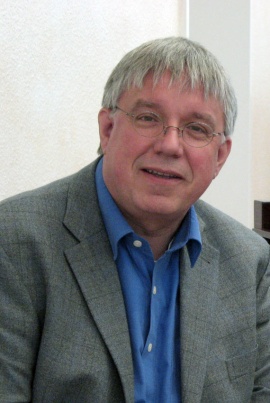
Michael Struck (mws-henle.person.role.HERAUSGEBE)
Dr. Michael Struck, born in 1952 in Hannover, studied school music, private music teaching, piano (diploma, class of Werner Schröter), musicology (Constantin Floros) and pedagogy at the music conservatory in Hamburg and at Hamburg University. In 1984 he completed his doctorate with a thesis on Schumann’s controversial late instrumental works.
He is a research associate at the research centre the new “Johannes Brahms Complete Edition” at Kiel University (member of the editorial board), as well as editor and supervisor of numerous volumes. He is the author of many musicological publications on music of the 18th to 20th centuries and other work editions. Struck is also a music critic. As a pianist he has given concerts with the vocal ensemble of Kiel University as well as with the Wiesbaden Chamber Choir and has given concert lectures (in 1989, 1997, 2001, 2005 as part of the matinees on “Raritäten der Klaviermusik” in Husum). In 2009 he was awarded the Schumann Prize of the City of Zwickau, in 2010 as a scholar at the Brahms Research Centre at the Musikwissenschaftliches Institut of Kiel University he was a co-prizewinner of the Brahms Prize 2010, conferred by the Brahms-Gesellschaft Schleswig-Holstein.
Product Safety Informations (GPSR)

G. Henle Verlag
Here you can find the information about the manufacturer of the product.G. Henle Verlag e.K.
Forstenrieder Allee 122
81476 München
Germany
info@henle.de
www.henle.com
Wie man es von Henle-Notenausgaben gewohnt ist, erscheint der Notensatz transparent und gut strukturiert. Neben den Ausführungen im Kritischen Bericht enthält der Notentext diverse Fußnoten mit wichtigen quellenkritischen Anmerkungen nebst präzisen Querverweisen auf den Editionsbericht. Dem Nutzer stehen diese wichtigen Informationen somit unmittelbar beim Studium des Notentextes zur Verfügung. Aufgrund des Umfangs des herangezogenen Quellenmaterials und dessen akribischer Auswertung erfüllt und übertrifft der vorliegende Band alle Wünsche an eine wissenschaftlich-kritische Ausgabe. Ohne jeden Zweifel bildet der Band einen epochalen wie vorbildlichen Beitrag zur Brahms-Forschung und trägt damit nicht zuletzt dem einer Gesamtausgabe stets auch innewohnenden Denkmalcharakter in jeder Hinsicht Rechnung.
Die Tonkunst, 2022... there is no question that on the whole this remarkable volume is based on extensive research and allows engaged readers and performers to approach Brahms’s works for violin and piano with a rich factual foundation. The volume offers an update in comparison to previous editions and represents a milestone for scholarship on Brahms’s violin sonatas and the FAE Sonata.
American Brahms Society Newsletter, 2022推荐
autogenerated_cross_selling


